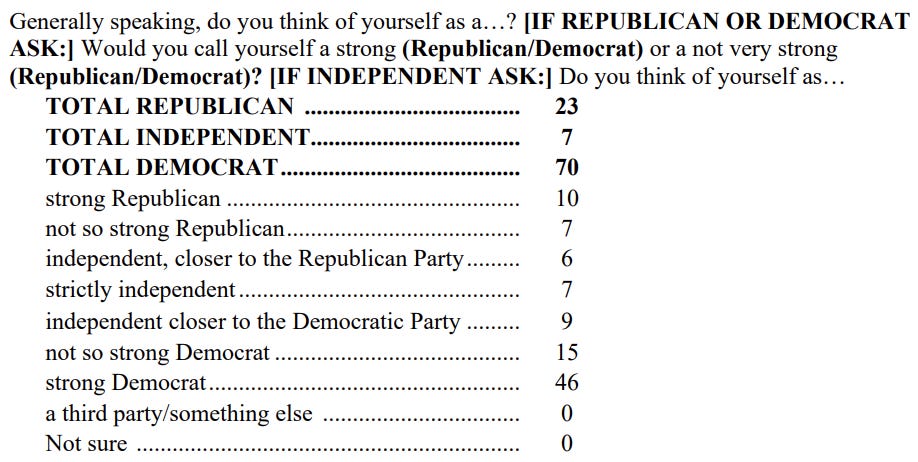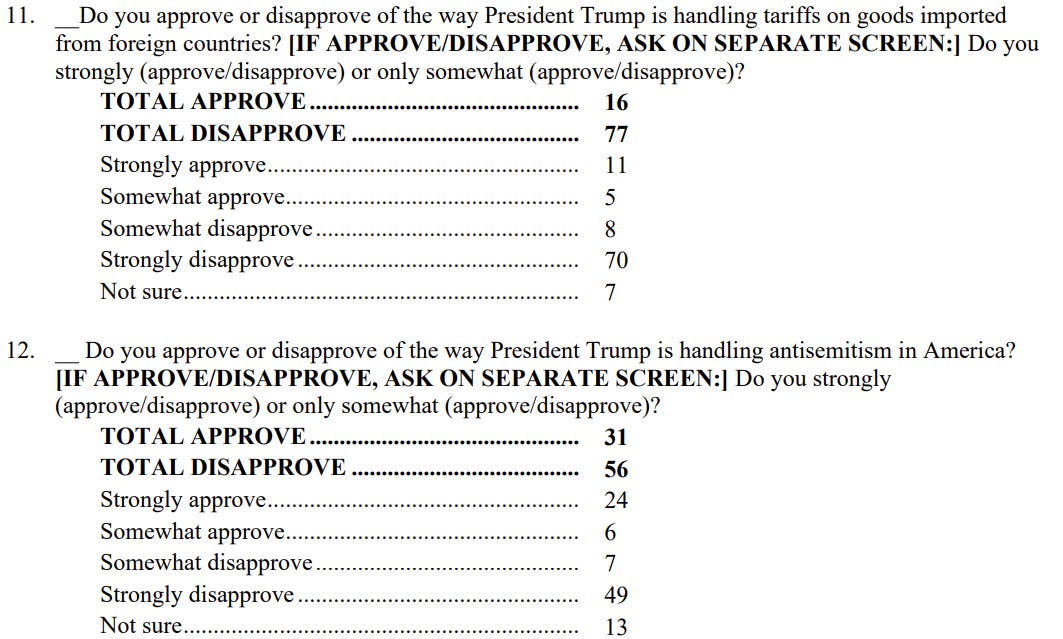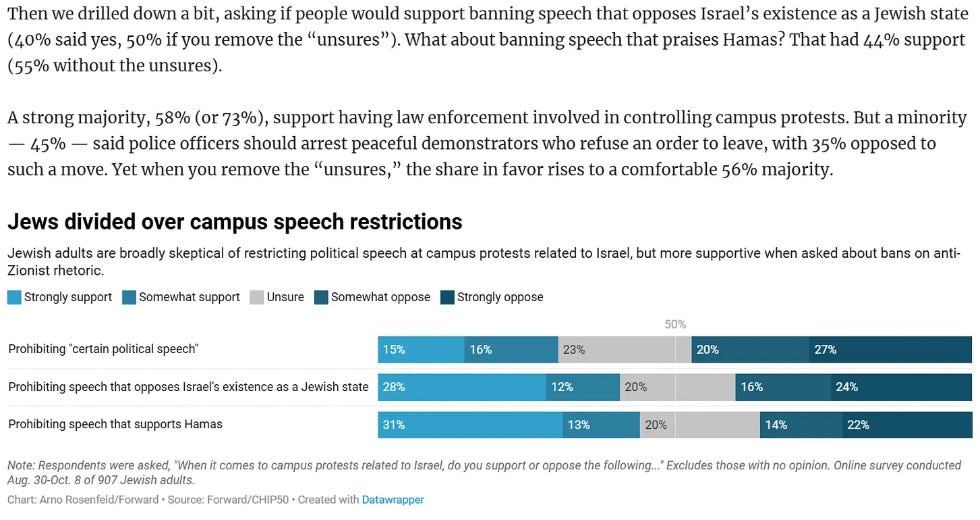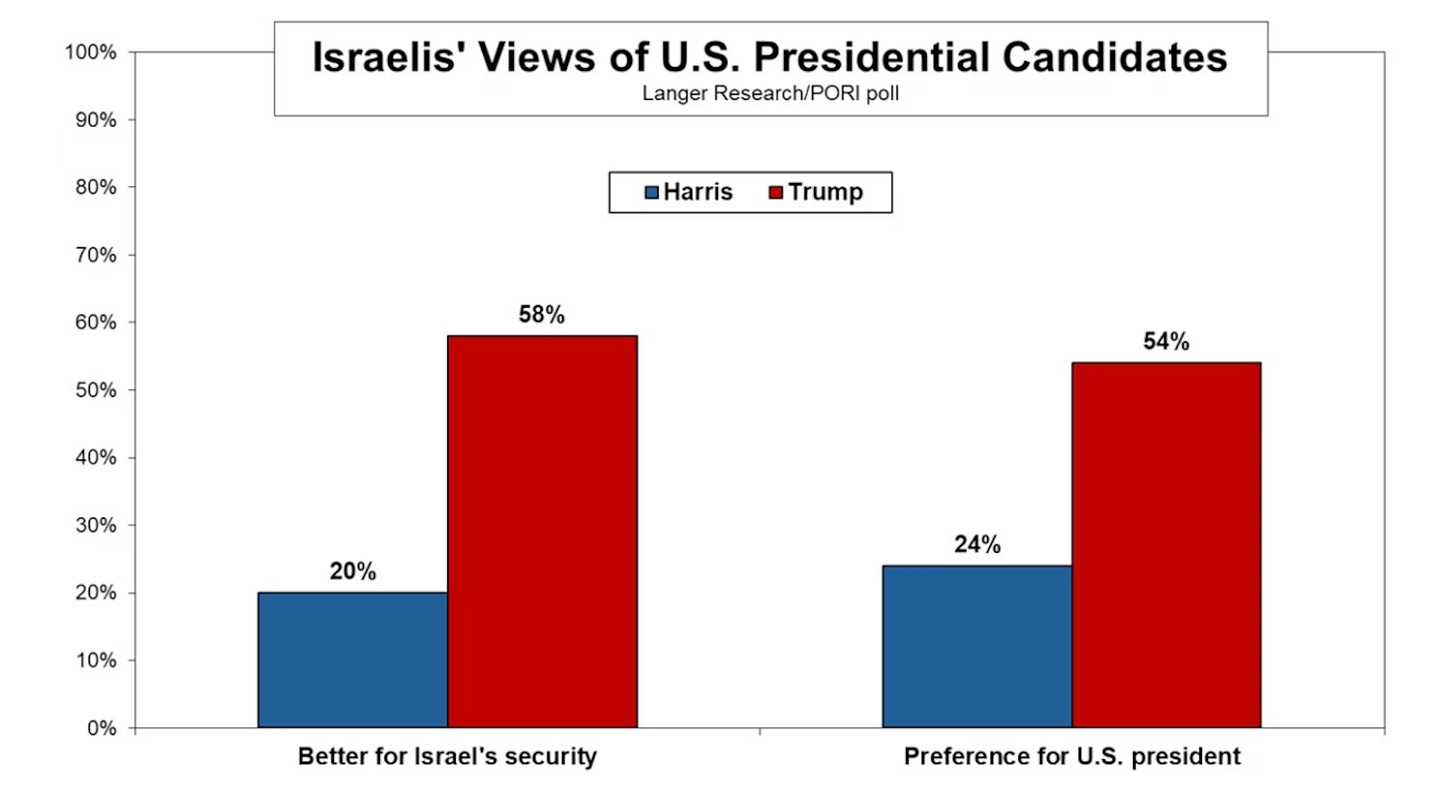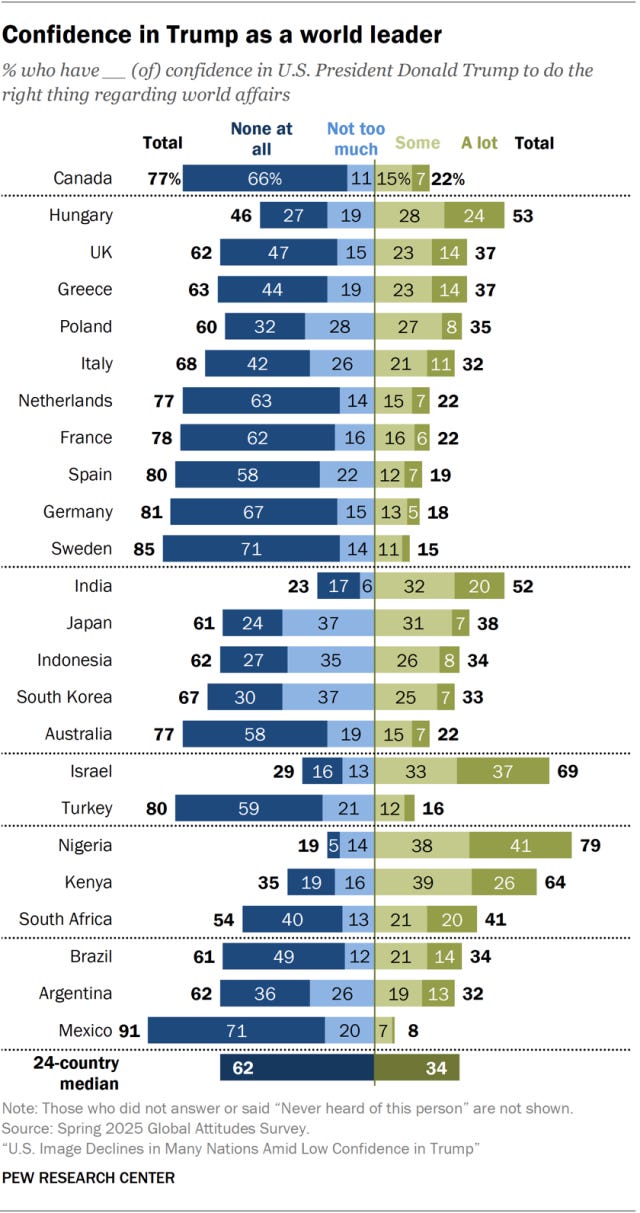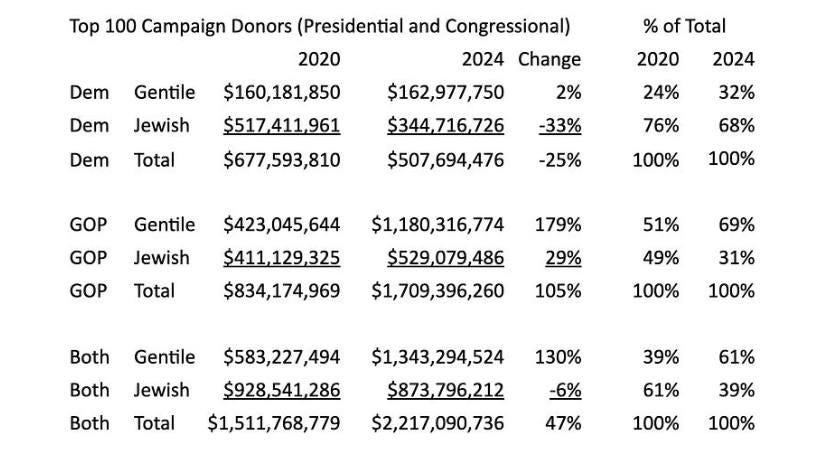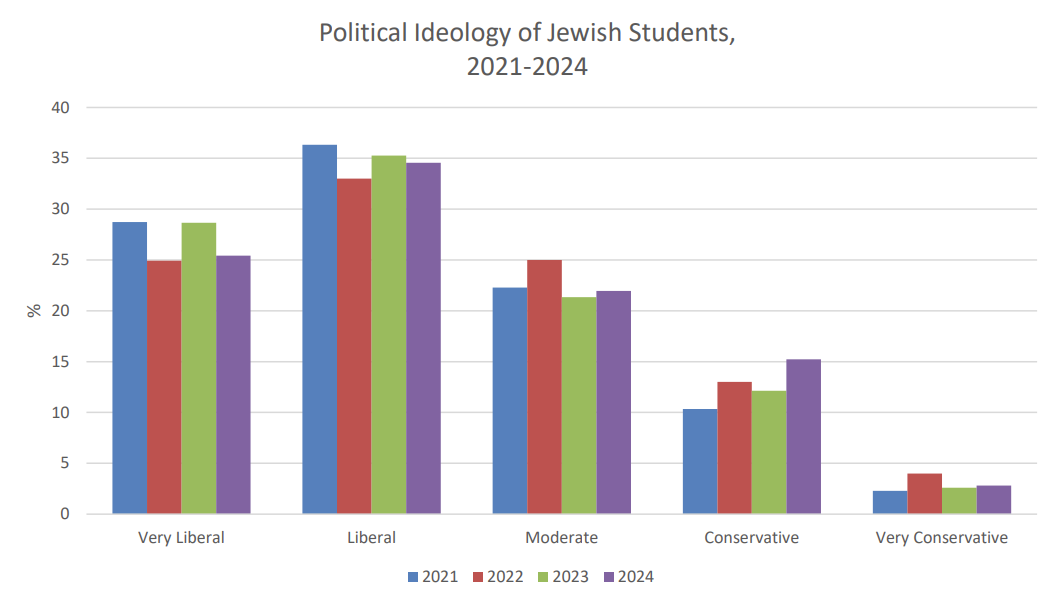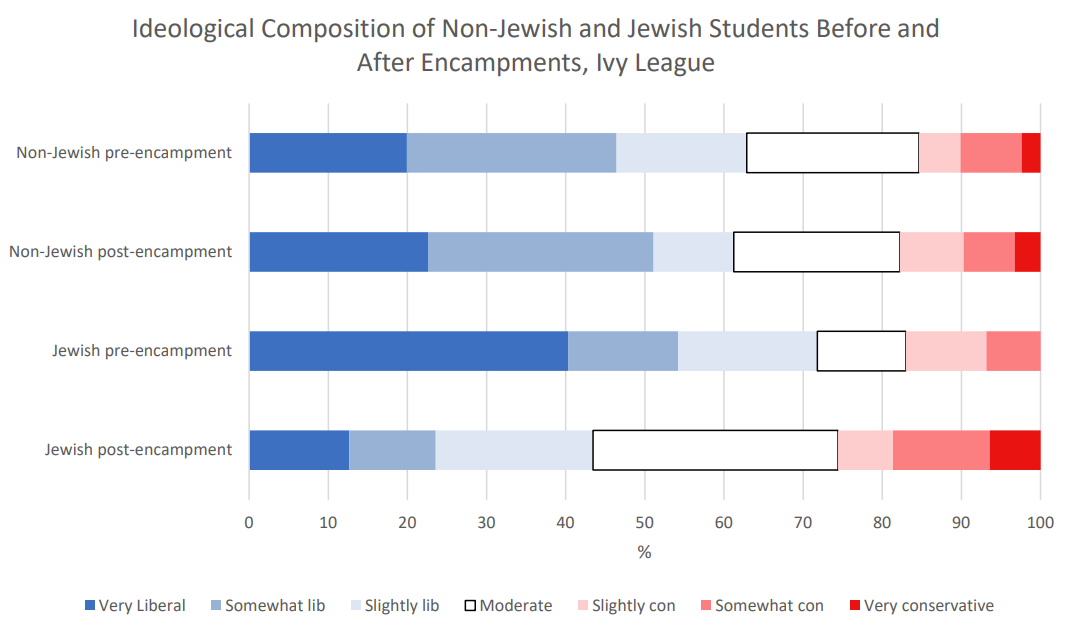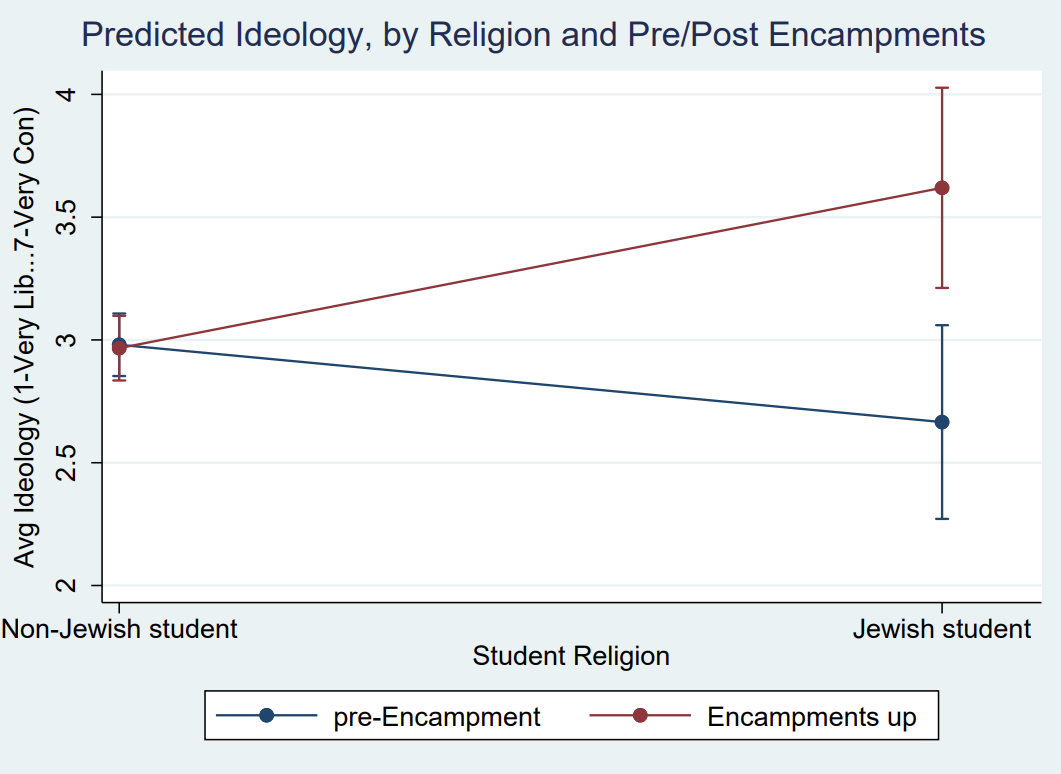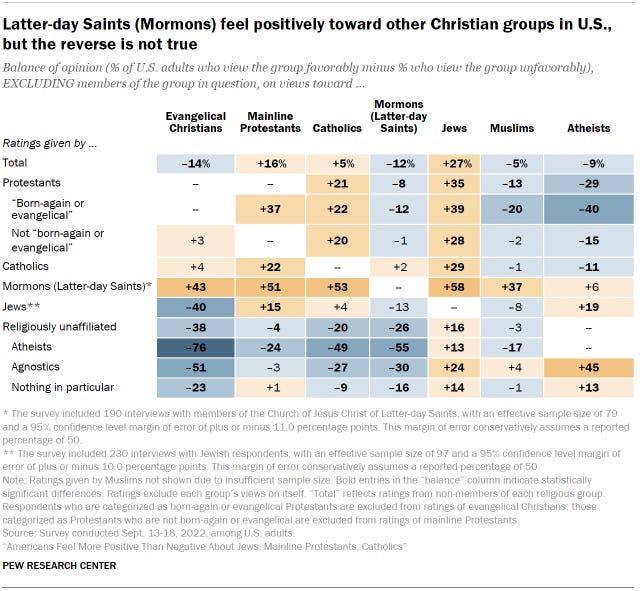Are Jews Shifting Right? (and what does it mean)
Examining the evidence and the implications
It’s been quite sometime since I posted something Jewish related. Time to fix this, by exploring the recent political shift of the American Jewish community. The first part will seek to answer critical questions: Has a genuine shift occurred? What is its true extent, and which demographics are primarily responsible for it? The second part will explore the practical political implication of it. Why it’s a good thing, why it’s a bad thing and finally my final verdict.
While many have predicted a significant Jewish shift toward the political right in the 2024 election, the election results were definitely underwhelming. Stated differently, there is little concrete evidence to support the idea of a Jewish-Republican wave. The most reliable national polls (pre-election) estimate Jewish support for Trump at around 26%, a modest increase from 2020 but far from a dramatic realignment.
At the same time, enthusiasm for the Democratic nominee among Jewish voters also appears tepid; notably, the frequently cited poll showing just 21% support for Trump excluded New York and other areas with heavily Conservative Jewish populations, skewing its findings.
Some polls do suggest higher Jewish support for Trump—over 30%, however there is no proper national data. Just surveys, but if we look at neighborhood-level data shows that Orthodox and ultra-Orthodox Jewish communities, in particular, often favor Trump. A few notable examples of such neighborhoods include...
In 2020, 770 Eastern Parkway, headquarters of the Chabad Hasidic movement, was in the middle of some of the most evenly split territory in all of New York City, with Trump claiming 52% of the vote in the three precincts along Kingston Avenue between Eastern Parkway and Crown Street. It’s not so close anymore: Trump got 62% of the vote this time around, likely on the strength of higher turnout among Chabadniks.
and
In Brighton Beach, Brooklyn’s main post-Soviet Jewish enclave, Trump’s support was consistently in the 75%-90% range, compared with support in the low 60s in 2020.
and
Trump leaped from 46.6% of the Aventura vote in 2020 to 59.7% this year, winning all but one of the town’s seven precincts. An almost identical shift happened in the much smaller Miami Beach community of Surfside, where Trump went from 48% of the vote in 2020 to 61% in 2024. The Shul, the sprawling Chabad complex in North Miami Beach, marks the border between Surfside and Bal Harbour, another Jewish enclave where Trump gained in vote share, from 62% to 72%.
If I were to give an approximate guess, I believe that Trump managed to get at least 25% and up to 30% of the Jewish vote, which is less than what Reagan or Richard Nixon (in his second term) have gotten.
At the same, there is no strong Jewish support for the Republican party asides from certain ultra-religious Jewish communities on the Right. The best poll after the election, puts the number of strong Jewish Republicans at just 10% whereas, strong Jewish Democrats are outnumbering them by a factor of 4.6.
This suggests that, without pandering, just 17% of the Jewish vote would go for the Republicans by defeat and anything up is considered a bonus. In contrast, around 60% of the Jewish vote will always be secured for the Democrats (or was, if we were to jump forward).
Funny enough, the 17% number is quite close to trivial issues trivial to Jewish identity such as tariffs, but when it comes to crackdowns on speech critical of Israel, the Jewish support for Trump’s action increases to about a third.
In otherwards, the Jewish American community at large is highly liberal and will support a Republican candidate only when he is good for Jewish interests (and by support I mean going from 17% to 1/3 approval rate). I wish there was a poll on Israel specifically, but I could not find a newer one.
Anyways, in case you are wondering why just 31% of Jews support Trump’s “antisemitic” crackdowns on college campuses and not over 50%, the answer probably has to do with the fact that most American Jews are paranoid schizophrenics who believe that Trump is one step away from enacting the second Holocaust.
How can Trump be trusted in combating antisemitism, if, fundamentally 52% of Jewish Americans believe that Trump is antisemitic himself? I refuse to believe in the idiotic claim that Jews value ‘free speech’, which is why most Jews are opposed to the crackdowns, because the evidence shows, most of them don’t actually support free speech.
With the most charitable data (gathered from Jewish university students), you could maybe argue that the Jews are “divided” over free-speech. But there definitely is no clear support for free speech as we see with White Christians.
But anyways, I reckon that, had American Jews been less paranoidly delusional, the numbers would mirror the Israeli numbers, where the they (including 25% of Arabs), do appear to like Trump (what a surprise!):
So the TLDR is that Jews are not a reliable rightist political block for as long as Secular and non-Orthodox Jews make over 80% of the Jewish population.
But that data is ultimately of the general Jewish population. The general Jewish population is not the one that is in-charge of making important political decisions. The Jewish elites are, which is why we must study who they support.
If we look at top Jewish donors then we’ll notice that roughly 1/3 of the top 100 Democratic Jewish campaign donors have switched their allegiances and donated for the Republicans instead of the Democrats.
In terms of financial contributions, in the 2024 election, Jewish donors gave $200 million more to Republicans than to Democrats, which may be the first time in history when elite Jews back the Republican party more than they back the Democratic Party.
Seems like they got what they have paid for!
Anyways, there is also the Jewish managerial elite, that can be best studied through the Ivy Leagues numbers. Speaking of which, there does appear to be a slight increase in the overall Jewish “Conservative” demographic within college students (not just the Ivy Leagues) but, as clearly seen, it is a minor shift.
More, interestingly however, are the particularly politicized Jews. As Eric Kauffman summarizes for the Tablet Magazine:
When the encampments went up on elite campuses, Jewish students abandoned the far left in droves. The share of Jewish Ivy League students who identify as “very liberal” on a 7-point ideology scale declined from 40% before the encampments to 13% after they appeared. The proportion of “strong Democrats” tanked from 37% to 14% while the Republican share rose from 12% to 18%. Ivy League Jews went from being well to the left of the median Ivy League student to leaning right of the average.
These are indeed significant shifts, but they primarily reflect changes among politically active elite Jews—those who, like major donors, are engaged in elite or aspirational elite circles. As the data suggests, there is a real, though limited, movement among Jewish elites and would-be elites toward the Right.
However, this shift is less an embrace of Conservatism than a growing ambivalence towards both camps. As Eric Kauffman writes:
Conservative students on elite campuses have a weak sense of linked fate with Jewish students who are feeling hard-pressed by their liberal non-Jewish classmates. The result is an increasingly isolated and politically alienated group of elite Jewish students, who are likely to have an outsize influence on the future of Jewish American political loyalty.
Many Jews are uncomfortable with the universalist logic of Liberalism becoming applicable to their ethnostate (to which their true loyalty lies). This discomfort increasingly alienates them from what is commonly referred to as the “Progressive Left.” But the younger Conservatives aren’t too eager in embracing the Jews either, because they remember how they vote. This ultimately drives Jewish identity more towards the center.
For it is not an embrace of Conservative ideology per-se, it is more of a recognition that the Democratic Party and its running ideology is bad for the Jewish ethnostate, while the Right wing is Christian (aka genetically antisemitic, and thus dangerous).
As I wrote in my other article:
Jewish group animosity towards non-Jews is primarily driven by the perception to what extent a given group is antisemitic.
If you look at the media, most of Jewish attacks are directed towards White Nationalists, Muslims and Christian Fundamentalists. In reality Blacks are highly overrepresented in both antisemitic beliefs and attacks yet Jews seem unfaced, and dislike the groups traditionally associated with White, middle class and Christian culture.
Thus, the move away from the Left is purely strategic and conditional. They don’t instinctively want to be allied with the Right but they have to, because the Left has “gone insane” or whatever. And the moment the left ceases to be “insane”, the Jews elites will return to supporting them, as they have before. As written by Doomernat in response to Nathan Cofnas
Due to this rebranding on Labour’s part, Jewish support for Labour skyrocketed from 11% to 46% and Jewish support for Conservatives dropped dramatically from 61% to 30%. (Boyd 2024) This is actually higher support for Labour than the national average. The explanation for this is obviously the fact that the threat of antisemitism was no longer, and support for Labour was back on the table. Many Jews in fact admit this is the case (Both 2024).
It’s not the first case, and it won’t be the last. In the next paid-section I will go over the ramifications of this. I will make the case for why this is a good thing (and no, it is not because I care about party politics or Jewish elite supporting the Right out of their particular interests, which is arguably a bad thing) and also why this may be a bad thing before giving a verdict.


